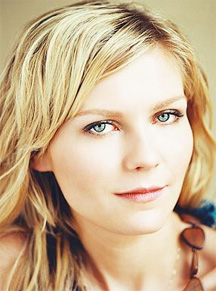LOS ANGELES, (Reuters) – Kirsten Dunst steps out of her comfort zone and deep into a paralyzing depression in her latest film “Melancholia.”
Better known for light fare like “Spider-Man” and romantic comedies, Dunst plays the lead in the part science-fiction, part family drama from Danish director Lars von Trier, which opens in select U.S. cities on Friday.
The actress, 29, found herself challenged with intense emotional scenes and nudity while portraying Justine — a complex bride who deteriorates into a melancholic depression after getting married and immediately regretting it. “It’s a very vulnerable part and there are very difficult scenes, but the environment was very comfortable,” said Dunst.

“Anything I had to do, which I may not have felt comfortable with in a different setting, felt protected so I could let loose and be open,” the actress added.
Complicated female characters and visually arresting images have become a trademark for von Trier, who cast Nicole Kidman in the 2003 thriller “Dogville” and Charlotte Gainsbourg in the 2009 supernatural movie “Antichrist”. Dunst called von Trier “one of the great directors of our time.” He, in turn, drew a performance from Dunst that won her the best actress award at the Cannes film festival and is now earning talk of a possible first Oscar nomination.
It is the best critical acclaim Dunst has experienced since her performance as a 12-year-old in the 1994 drama “Interview With the Vampire” alongside Tom Cruise and Brad Pitt.
New York Times movie reviewer A.O. Scott said the actress “is remarkably effective at conveying both the acute anguish and the paralyzing hollowness of depression.”
END OF THE WORLD
“Melancholia” is an apocalyptic tale of sisters Justine (Dunst) and Claire (Gainsbourg) set against an epic backdrop, when Earth’s existence is threatened by the approach of the planet Melancholia. Alexander Skarsgard and Keifer Sutherland co-star.
The film is divided into two sections named after the sisters, and moves from light, celebratory scenes of Justine’s wedding to darker anxieties, accompanied by arresting cinematography and Richard Wagner’s dramatic operatic score of “Tristan and Isolde.”
Justine’s depression and mental decline make her reliant on the strength of her sister Claire. But as the mysterious planet Melancholia slowly edges its way on a collision course with Earth, Justine finds herself becoming stronger while her sister crumbles.
